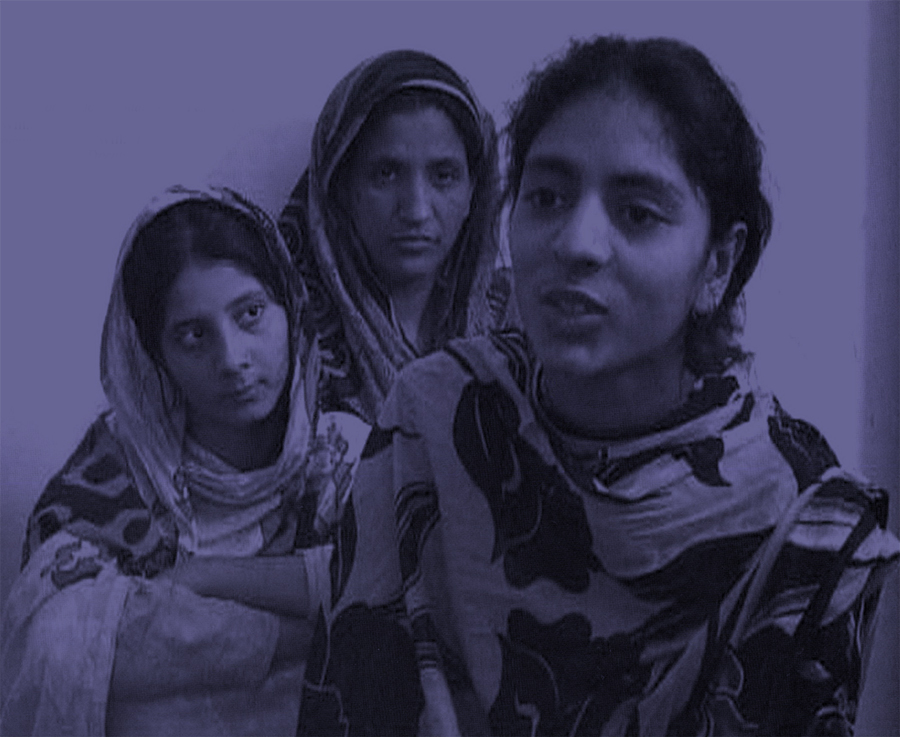Cutting-Edge Images of the 21st Century: Thessaloniki Doc Fest Focuses on Palestine, Oppression of Women
By Anette Olsen

Offering a full ten-day program of high-quality documentaries, the fifth Thessaloniki Documentary Film Festival—"Images of the 21st Century," held in March in Thessaloniki, Greece—has established itself as a major documentary event, in spite of its relatively short existence.
In the spirit of this year's festival poster depicting a film reel designed as a razor blade, many of the films had a cutting-edge aspect to them. Though many of the titles were repeats from earlier festivals, there were plenty of new events to experience, including a new Greek competition section. Alongside the five main sections presented each year—Views of the World, Stories to Tell, Habitat, Portraits and the Recording of Memory—this year's festival focused on Palestine, showcasing a number of recent films by directors of different backgrounds and nationality.
The Fipresci Award went to the Dutch production Ford Transit by Palestinian filmmaker Hany Abu-Assad. Structured as a road movie, the film follows the daily life of Hajai, a young Palestinian cab driver on his trips between Ramallah and Jerusalem. Portrayed more as heroic survivor than victim, Hajai gets by thanks to his creative tricks and ideas.
Most of the film is shot inside the van, where the passengers—ordinary Palestinians with different social backgrounds-discuss the Israeli-Palestinian conflict. In addition, more prominent people such as Israeli filmmaker B.Z. Goldberg (Promises) and former member of the Palestinian government Hanan Ashrawi are invited inside the van to give their opinions. Through all these people the filmmaker succeeds in drawing both a picture of the man on the street and a more analytical view of the conflict. The film is also highly entertaining.
Quite a number of docs in the festival dealt with the subjugation of women. Against My Will by Turkish filmmaker Ayfer Ergün is a powerful documentary on the issue of honor killings in Pakistan. Ergün focuses on three women who have run away from their families and taken refuge at a shelter for women. The shelter offers legal support and sometimes sends the women to another town or even abroad, if their case is desperate. Razia was disfigured by a fire when her family sprayed kerosene in her room, 21-year-old Anita ran away from her 70-year-old husband, and Kubra was abused by her husband and refuses to go back to him. All three women are threatened by death by their families for dishonoring them.
The director had been filming at the shelter and at Kubra's home. Three weeks after one of the shootings, Kubra was murdered by a relative. The filmmaker explained in a Q&A session after the film that the father of the murdered woman had asked Ergün to go away and not to film, but she was so affected by what had happened to Kubra that she continued to film secretly. "I was so angry; I had to film anyway." The film does not depict the family as the sole villain, but makes the point that tradition in its most fundamental form brings people to murder their own daughters.
Another film about suppressive practices employed on women was Kim Longinotto's The Day I Will Never Forget. Filmed in Kenya, where female circumcision is a tradition, the film shows the complexity of this mutiliation of women. What the filmmaker did not expect when she made the film was that a group of 16 young Kenyan girls would take action against their families' wishes to have them circumcised by taking them to court. "It was like these girls had broken a chain," Longinotto said in an earlier interview. "Their mothers were very proud of them."
Another strong film on women pioneers fighting for their rights was Our Times by Iranian filmmaker Rakhsan Bani-Etemad, who is well known for her feature films (Under the Skin of the City; The May Lady, et al). In the first part of the film, Bani-Etemad follows Iranian youngsters on their campaign tours around Tehran to make people vote for Mohammed Khatami as president. The film picks up when the filmmaker meets a single mother, Arezoo, who has signed up as a candidate for the presidency, even though she has no chance of getting elected, since women are not eligible.
Arezoo is in a precarious situation; she must find a new house to rent within three days. In her desperate search for housing, we learn many things about the Iranian society's repressive view on women. Nobody wants to rent a room to Arezoo because she is a single, divorced woman without references and therefore a threat to morality. She suffers all kinds of humiliations, the ultimate one being when her boss no longer allows her to come to work because of her candidacy.
In voiceover, the filmmaker tells us that the film crew has given Arezzo a small loan that enables her to find an apartment. But the Iranian society is not changing perceptibly in favor of women's rights, and we'll probably see many more sad fates of women on the festival screens.
Anette Olsen is a freelance journalist and scriptwriter based on Copenhagen, Denmark.
